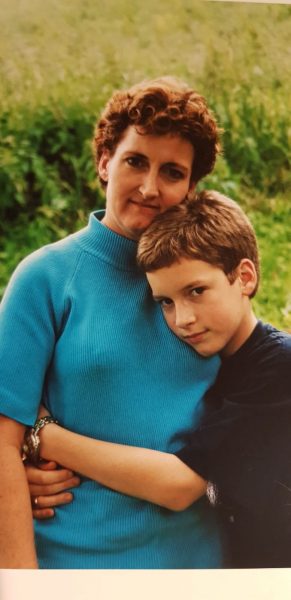This is the moment I’ve been waiting for: Erik’s mind bending explanation of Time. In subsequent sessions, he further elaborates, so this only skims the surface. Please take you “time” (hee hee) and soak it all in. Enjoy!
Channeling Transcript
Me: Okay, now. I’d like to talk about the concept of time. Erik, how do you perceive time, and how does that dovetail into our concept of time, our construct? How does it reconcile with past and future lives?
Jamie: He pulls out—to me it looks like a slinky—and he’s stretching it and collapsing it and stretching it and collapsing it.
Me: Cool!!
Jamie: Like a big spring!
(Long pause as Jamie listens)
Jamie (giggling): He’s just rattling off all kinds of things! Now Erik, slooooow down! Talk really slowly for this, because it boggles my mind.
Erik: All right. When—
(Pause)
Jamie: Simple Erik! More simple!
(Pause)
Jamie (chuckling): He’s just laughing at me! No, no, no, Erik. Simpler will be easier to write about, and then you can get more complicated as we go.
Me: Yes, please. Dumb it down for us.
Erik: Within each dimension, there are different measurements of time.
Me: Okay.
Erik: Let’s start there.
(Pause)
Erik: When we’re human, time for us is taught in a linear pattern. Let’s take language. It’s through the very linear human language that sequences are possible. It allows us to arrange events and actions sequentially. Um, with that sequential language, present moments become surrounded by past moments and future moments. So it’s a human fabrication. Think about all the tenses we use: past, present and future.
Me: Wow!
Jamie: What is that, Erik? He’s saying “A to B, tick, tock, tick, tock,” and he does his hand like a clock.
Erik: You—humans—don’t go backwards. You only go forward and only at a certain speed. Okay. (pause) Now in this dimension, this dimension we reside in as humans, there is a measurement that’s not applied, and it happens to all of us—where time speeds up and slows down. It’s like a breath. You can breathe in deep and hold it and slow down your heart rate, or you can breathe quickly and bring up your heart rate. This happens, say, when we get in a car, and we know we’re running late, but we don’t speed, but we still get there on time, maybe even a little early. And then we wonder how that happened!
Me: Ah!
Erik: Because you hit the red lights like you always do; you stop at the traffic signs; you let people in front of you, and you still made it on time.
Me: Um hm. That’s happened to me many times.
Erik: And there are those that think they have plenty of time. They gather their items together, which should take just a minute, but ten minutes is gone. Time speeds up.
Me: Or like when you’re working on a project and you’re really “in the zone,” completely immersed in it, then you look at the clock, and what seemed like an hour ends up being three.
Erik: Yes, In the zone. That’s what we’re going to talk about, because that’s an emotional state of being.
Jamie: And he’s pointing his finger like, “I’m talking about a point.”
Me: Oh, so we better pay attention!
Jamie (giggling): His finger is just going to town.
Erik: It’s an emotional state of being. With joy—not happiness—joy, what do you think time does—speed up or slow down?
Me: Slows down? (pause) Oh, heck, I don’t know. It probably depends on what side of the clock, uh, of time, you’re on. It depends on your point of reference. I’m so confused!
Erik: That’s true. Most of the time, with joy, there’s expansion. And in that expansion, time feels elusive, but it speeds up.
Me: Oh, it speeds up! Once you get out of it, you see that it has sped up. While you’re in it, it seems to be—
Erik: Expansive, huge.
Me: And then after it’s over, then it seems like, “Wow, where did the time go?”
Erik: Yeah, think of your wedding, Mom. You’re getting married, your walking down the aisle, everything just seems larger than life. And then when the night’s over, you feel like you only had thirty minutes.
Me: Yeah. Okay.
Erik: Now think about grief. The grief state-of-mind.
Me: Oh, boy. Time goes on forever.
Erik: Forever. It’s really narrow-minded. It’s like looking straight down, only at your feet.
Me: Ah!
Erik: And time moves very slowly.
Me: So is this the slinky?
Erik: Yes! That’s our emotional state of being affecting time—the human construct of time. So language sort of frames it, and emotions can expand or contract it.
Me: Fascinating.
Erik: Mom, don’t you notice how when people grieve or they have hardships or challenges how they age so fast?
Me: Yes, because I’ve aged ten years in the past year. And look at all the presidents and how they get so gray so quickly.
Erik: But when people are joyful, their bodies stay youthful.
Me: Yeah.
Erik: That’s a time. That’s a measurement of time.
Me: Wow, interesting!
Erik: So on the earthly dimension, time is a function of language, motion, and emotion. Motion and language create your perception of time, and emotion expands or contracts it. Time exists only in consciousness. Outside of consciousness, it doesn’t.
Me: Whoa. That’s a mind-bender, Erik!
Erik: Now, when you go beyond the dimension you live in—uh, okay on earth, you find that time can have different measurements. It can have—bear with me—a front side and a back side. The front side can be what you’re focused on. You focus on it, you create it. You focus on expansion, you can do that. The back side is when there’s no focus, where there’s no measurement. Time can be as it is. This is when everything happens at once?
Jamie: Oh, he didn’t say it like a question. I said it like a question, looking at him like, “What?”
(Long pause)
Jamie: Ohhhh! I’m arguing with him just a little bit, because he says that in the truth of realities that we can understand, time is all happening at once. There’s no future, there’s no past. There just “is,” and that’s basically how time is for them over there in Erik’s dimension.
Me: Okay.
Jamie: So my question to him was, “Are you really trying to tell me that looking at something grander like the cycle of Earth, is being created, lived on, and destroyed all at the same time?
(Pause)
Jamie: He looks at me and laughs and goes, “Yep.”
Me: So we are living our past and future lives at the same time we do our present lives, I suppose?”
Erik: Yes, yes!
Me: Okay. So when people over there reincarnate, are they still there in heaven and that new life?
Erik: Yes, yes, Mom. Exactly.
Me: This is so interesting. So what is time shaped like over there? Is it just a point? Is it a web, a loop? I’m talking about the whole grand scale of past, present and future.
Erik: I get what you’re saying. If you need a visual, take the web, but some waves in it, and make every line intersect. So, you can travel to any location you want: any dimension or any future or past or present point. It’s all a moment point. It’s all happening at once.
Me: Okay. And what are those intersections?
Erik: Of lives. Intersections of lives. We have to speak in terms of past lives, because as humans, time is linear, and you don’t believe in the future until you’ve walked in it. So we don’t even talk about future lives; that sounds like science fiction. But soon, the term “future life” will be just as common as the term, “past life.” What do you think Leonardo Di Vinci was tapping into?
Me: Oh, yeah!
Erik: You look at his sketches and designs, and you can see how he was clearly traveling across time and dimensions, then logging what he was experiencing.
Jamie (in mock frustration, like a strict school teacher fussing at an unruly student): Erik!! ERIK! Slow down!
Erik: Also, you have to realize that we’re not the only intelligent beings.
Me: Hm, that’s true.
Erik: We have interactions with other dimensional beings—you can call them aliens, but people don’t really like that word, cuz it scares them or it makes them laugh. So, why not say, “other dimensional beings?”
Me: Okay.
Erik: Cuz then I think they’ll read it with curiosity, and they won’t, like, put a block up.
Me: Okay.
Jamie (laughing): People—Aw! The way he says this, he’s got his elbows on his knees, you know, and he just kind of drops his head after he says it. He goes, “People are so programmable!” He drops his head like he doesn’t know what he’s going to do with us!
Me (laughing): Aw!
Erik: I was such a victim of that!
Me: Oh, God we all are. And I can just see him. He used to drop his head that way when he was frustrated, like “Argghhh!”
Jamie (giggling): That needs to be a t-shirt, “People are so programmable.” I’ve so often wanted to use those catch phrases and then sell the t-shirts, because it’s so funny some of the things they say. They make such a good point in three words.
Me: Exactly.
Jamie: Well okay, four words. Thank you, Erik.
Me (chuckling): But who’s counting?
Poor Jamie probably had to take the rest of the day off after this session! I hope she treated herself to a nice long bubble bath or a walk out in nature. Tomorrow, Erik will explain a bit about our multidimensional multiple selves. Take an Advil for the headache you’re sure to get!



